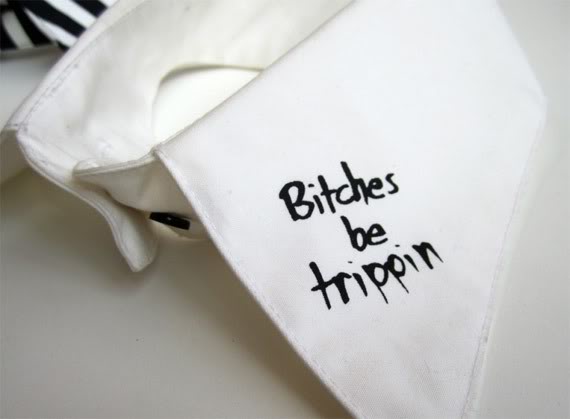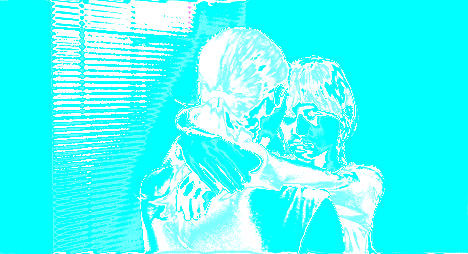Bachelard on the Miniature

From Gaston Bachelard’s The Poetics of Space:
Psychologists–and more especially philosophers–pay little attention to the play of miniature frequently introduced into fairy tales. In the eyes of the psychologist, the writer is merely amusing himself when he creates houses that can be set on a pea. But this is a basic absurdity that places the tale on a level with the merest fantasy. And fantasy precludes the writer from entering, really, into the domain of the fantastic. Indeed he himself, when he develops his facile inventions, often quite ponderously, would appear not to believe in a psychological reality that corresponds to these miniature features. He lacks that little particle of dream which could be handed on from writer to reader. To make others believe, we must believe ourselves. Is it worthwhile, then, for a philosopher to raise a phenomenological problem with regard to these literary “miniatures,” these objects that are so easily made smaller through literary means? Is it possible for the conscious–of both writer and reader–to play a sincere role in the very origin of images of this kind?
It is Friday: Go Write Ahead.
Brood, I do, on myself naked
She handed me a full glass and said, “This is the last drink you will ever take”
Are you equally unspectacular?
If you love me, as I love you
We’ll both be friendly and untrue
When you go. Go TV spots and skywriting. I mean it
I am surprised and pleased at the recent abundance of the nearly naked
I am not even going to drink. Only beer or brandy
We have reason to be afraid. This is a terrible place
Our friend the owl
Something has been said for sobriety but very little
Smears brandy on the trampling boot
Up to the bar on a donkey!
Blessings on thee, little man
Barefoot boy, with cheek of tan
But helicopters
Research Questionnaire: On Reality TV

Reggie Bush and Kim Kardashian - "Keeping up with the Kardashians"
1. Do you watch reality TV?
–If yes, which shows and why?
–If no, how come?
2. Why do you think reality TV is so popular today?
3. What do you think reality TV reflects about our society?
4. Are there connections between realism in contemporary literature
and realism on TV?
5. Does realism on TV seem “more real” or “less real” or “different real”
than realism in contemporary literature?
Do You Know?
What is a prose poem, a flash fiction? They are both bastardy forms. Fuck, they should be hanging out. Simpatico, I feel. Or at least enough I walk your toad, you walk mine. Fueled on hops and piss. I guarantee you Max Jacobs would have bought. both forms a dank. aperitif. Hell, so would Kim Chinquee. But, noooooooooooo. So. So. Tell me. What is the difference? Fire away.
Appropriating an appropriation of an appropriation
Kate Durbin has posted images from Andrea Quinlan’s copy of The Polished You, which Kate produced for Vanessa Place’s Factory Series, which Vanessa describes as her version of Warhol’s practice of having “art-workers” help him create his paintings.
You can read more about the Factory Series here. And you can check out the whole series at Ood Press.
Plus, you, too, can appropriate the text created by Kate created by Vanessa created by Nancy Taylor, by purchasing a copy of The Polished You. After making it your own, you can scan the images of your copy and send them to Kate and she’ll post them.
I love this project for a bunch of reasons, not least of which are the many questions it raises about authorship, ownership, consumption, production, participation, and whether or not the idea of appropriation is merely the evil connotation of personalization.
9 hand-painted maps of imaginary islands
9. I’m sort of blar of folks saying the words in first line “Call me Ishmael” are “so intense and effective that they go down in history.” That’s revisionist as Gary Kasparov. The reason “Call me Ishmael” is a boss first line can be found 212,757 words later.
9. Some good books written by musicians if that’s your thang-a-lang.
9. Anybody else want to ban the word moon from all contemporary poetry?
9. Deb Olin Unferth Revolution ‘review.’ Somebody call roll, because we got a lack of class up in here. Oddly, Mr. Robert P. Baird doesn’t really do any reviewing, per se. He might have read the book, not sure. Here’s a snarky line, not about the actual book, etc:
Today, Ms. Unferth is a narrowly but deeply admired writer of fiction, hailed wherever the names Diane Williams and Gary Lutz hold currency.
Hold currency, oh man. I was actually waiting for MRPB to break into tipsy doggerel next.
9. I should talk a bit about hooking and hooking up and the girl libertine.
Do say.
“I wish my soul were larger than it is.”
 Someone asked me today whether I would be sad if I published (x) book and it alienated people from my community of origin, lost me their affection, etc. (I was raised a Southern Baptist, attended an extreme fundamentalist Christian school where many of the faculty were educated at places like Bob Jones University for the fourteen years preceding college, broke from those places to become an associate pastor in a more moderate tradition briefly after college, worked briefly in religious publishing, finally gave all of it up entirely, and I haven’t believed in god for almost ten years now.) I said that the only time I hear from most people from that time is when I publish something they don’t like & then they reach out “in love” to express displeasure and offer correction. Those who really love me, I said, have been in my life all along, regardless of whether or not they disagreed with me. My friend said he was in a similar place in life as me, but that it wasn’t worth it for him to lose the affection of those who have been in his life since he was a child, especially members of his family. READ MORE >
Someone asked me today whether I would be sad if I published (x) book and it alienated people from my community of origin, lost me their affection, etc. (I was raised a Southern Baptist, attended an extreme fundamentalist Christian school where many of the faculty were educated at places like Bob Jones University for the fourteen years preceding college, broke from those places to become an associate pastor in a more moderate tradition briefly after college, worked briefly in religious publishing, finally gave all of it up entirely, and I haven’t believed in god for almost ten years now.) I said that the only time I hear from most people from that time is when I publish something they don’t like & then they reach out “in love” to express displeasure and offer correction. Those who really love me, I said, have been in my life all along, regardless of whether or not they disagreed with me. My friend said he was in a similar place in life as me, but that it wasn’t worth it for him to lose the affection of those who have been in his life since he was a child, especially members of his family. READ MORE >
Bitches Be Trippin’

I love the Urban Dictionary because they seem to have a definition for everything. I spend a lot of time looking up dirty words and phrases. I learned what a snowball was via Urban Dictionary. It has nothing to do with the snow, that’s for sure. I love the phrase “Bitches be trippin’.” I don’t know why. On a whim, I decided to look up the phrase on Urban Dictionary. Sure enough, there was a definition. According to them, the phrase is “used primarily by heterosexual males to justify the irrational behaviors of women.” For example, when women bring attention to certain pervasive and longstanding disparities, one might say, “I don’t know what all the fuss is about. Bitches be trippin’.”
Comparing Experimental Art Forms
Danielle Dutton, from an interview at BOMBLOG:
Anne K. Yoder: Culturally, are people more open to experimental approaches in other art forms?
Danielle Dutton: On a very basic level, my best guess is that writing asks something different of its reader than listening asks of the listener. Same goes for looking at a painting, even one that might perplex or upset us. To read, to connect words in a difficult syntax, like Stein’s, or make sense of seemingly simple sentences within a maddening paragraph, like Beckett’s, or piece together a narrative that doesn’t seem to add up in a familiar way, like Gladman’s or Woolf’s, the reader has to pay close attention, has to work. I’m not saying that experimental writing is all slog slog slog, that it isn’t rewarding or entertaining, because obviously I think a lot of it is, but that we’ve been trained to think that language itself should work in one way, should be clear, and linear, and should instantly reveal meaning, so when writing confounds those expectations it’s perhaps easy to feel cheated by it, or to chalk it up as wrong, bad, pretentious. I’ve had students who were very open to talking about cubist paintings, for example, but who became furious over Gertrude Stein’s Tender Buttons. We’re taught to read, after all, and perhaps more importantly we’re taught to write (the subject-verb agreement, the five-paragraph essay, the rhyming stanza), whereas no one actually teaches us a particular way to hear or look, and rarely to compose or paint, which maybe, ultimately, means we’re more open when we listen and look. Maybe?
I want to put my hand in a jar of jelly just so’s I know what it feels like to be so sweet & sour as sauce.
I think tossing darts at a spinning board which is also rotating round its axes is a little bit like participating in a little bit of temporary contemporary literature. Coconuts. (Something about Spinoza’s eyebrows roasting) And really no one disagrees on the score because the darts are too damn small for most of the participants to see, let alone the patrons. Pineapple. Thank you for patronizing me is the first page of a book of mine that isn’t. Nectarines! Seeing is believing has more to it than you think, think of faith. Banana. Mississippi, but let’s face it; it’s a lot more than not for most of us; most of us don’t have time for such a view. Plums.
Most of us haven’t had the time to have seen a lot of the darts the rest of us have seen and also we are on a gigantic hot plate that is rotating around the game itself, making it difficult to know which part of the board one speaks of relative to another because it is simply impossible to say what we see is the same side at the same time in the same way. Ice cream of fruit. Float.
Thinking on what I am saying is a given. Salmon. So that it seems redundant to say so, as I did before. Roe. But then the affect is different with or without words like. Avocado. With gives you a feeling of humility while without lends authority, or something. Tomato. Either way I am the same person and so are you. Sandwich. But what does it matter? Football cap. It does. Forgiveness. I think. Peace of my mind. Which is why. None of your everything.
The reason everyone agrees on Orange is because the sun happens to set that way. {{{—}}}
The question is is it really so beautiful or is it just that big a deal to see the end of the day.
Like baby in a corner, don’t put language in a jar.
Put it in a penis pump. READ MORE >
February 5th, 2011 / 11:29 pm




